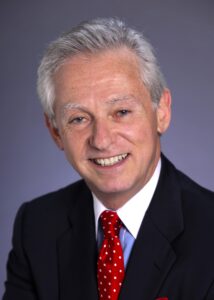Expert Witness – Corporate and Securities Law
Richard M. Leisner is an experienced expert witness in complex litigation involving corporate, securities, fiduciary duty and legal malpractice issues.
As the senior securities lawyer at Trenam Law, Richard’s many years of transactional practice have encompassed virtually all stages of the life cycle for private and public companies and their leaders and owners. After numerous expert witness engagements, Richard knows the responsibilities of effective expert witnesses and has been tested in depositions and at trial.
Richard’s real-world experience – both as a transactional attorney and expert witness – are the solid foundation for Richard’s approach to new expert witness assignments:
- Understand the events and people underlying the litigation
- Sweat the details in the record to find the most important facts and applicable legal principles
- Organize the key facts and legal principles into persuasive expert opinions
- Communicate the story and expert opinions in understandable language in expert reports or in-person testimony
Expert witness services may be critical to the successful outcome of your case.
Will the trier of facts reach the conclusion most beneficial to your client?
The right expert can help.
Education
- University of Pennsylvania, J.D. (1970 cum laude)
- Hamilton College, A.B. (1967 cum laude)
- The Best Lawyers in America, all editions since inception (1983-2021); Florida-Corporate, Securities, Capital Markets, Securities Regulations, Corporate Governance and Compliance
- The Best Lawyers in America, Lawyer of the Year (Securities Regulation) 2015
- Life Member, American Law Institute
- Life Fellow, American Bar Foundation
- SEC Advisory Committee on Smaller Public Companies (2005-2006)
- Chair, Middle Market & Small Business Committee, Section of Business Law, American Bar Association (1997-2001)
- National Association of Securities Dealers, Inc. Legal Advisory Board (1999-2004)
- Chair, Securities Regulation Subcommittee, Middle Market & Small Business Committee, Section of Business Law, American Bar Association (1986-1989)
- Chair, Business Law Section, The Florida Bar (1980-1981)
- Professor of Law (Adjunct), Stetson University College of Law, St. Petersburg, FL, Introduction to Securities Regulation (1976-1979; 1981-1983)

